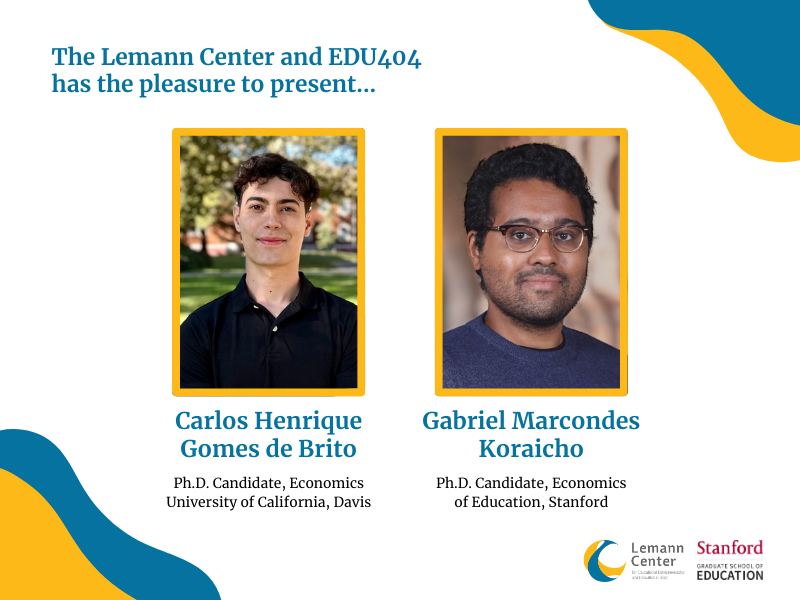How refugees are integrated into Brazilian schools: evidence from Venezuelans in Boa Vista, RR
How refugees are integrated into Brazilian schools
Evidence from Venezuelans in Boa Vista, RR
Date:
Tuesday, January 30, 2024 - 9:00am to 10:15am
This paper studies how the Venezuelan refugee flow after 2017 affected locals' educational outcomes in Boa Vista (a state capital in Northern Brazil). The refugee students' flow could have pressured school infrastructure and triggered peer effects that potentially affected Brazilians' learning process. We constructed a panel of schools (2010 to 2020) and a student cross-section (2019) from the publicly available data. First, we found that Venezuelan refugee students were assigned to schools closer to refugee shelters and with lower student-per-teacher ratios before the migration flow started. However, refugee school allocation was not based on other measures of school quality, such as exam performance. Moreover, Venezuelans were disproportionately allocated to the first grade and were consistently older than the expected age for a student in the grade they were assigned. Schools that received most Venezuelans observed a decrease in the number of Brazilians enrolled after Venezuelans arrived. It likely explains the null effect of the refugee flow over the number of students per classroom and teacher in refugee-host schools. Finally, comparing students within the same school grade but in different classes with different levels of exposure to Venezuelans, there are no consistent statistical differences other than zero Venezuelan peer effects on Brazilians' Math and Portuguese exam performances.
About Carlos Henrique Gomes de Brito
Carlos started his Ph.D. in Economics program at the University of California Davis. He holds an MSc in Economics from (PUC-Rio) and a BA in Economics from Universidade de São Paulo (USP). In his master's thesis, he evaluated the effect of immigrants on exports and imports in Brazil. Currently, He is studying the Venezuelan migration flow in Northern Brazil looking at the effect of refugees on locals' political preferences and education outcomes. His interest is in migration, education, development, and political economics.
About Gabriel Marcondes Koraicho
Gabriel started his Ph.D. in the Economics of Education program at Stanford GSE. He holds an MSc in Economics from Fundação Getúlio Vargas - Escola de Economia de São Paulo (FGV-EESP) and a BA in Economics from Universidade de São Paulo (USP). In his Master's thesis, he evaluated the impact of a fee waiver policy for students from public schools in their final year. His interest is in quantitative methods to evaluate public policies, focusing on education, inequality, and higher education.


